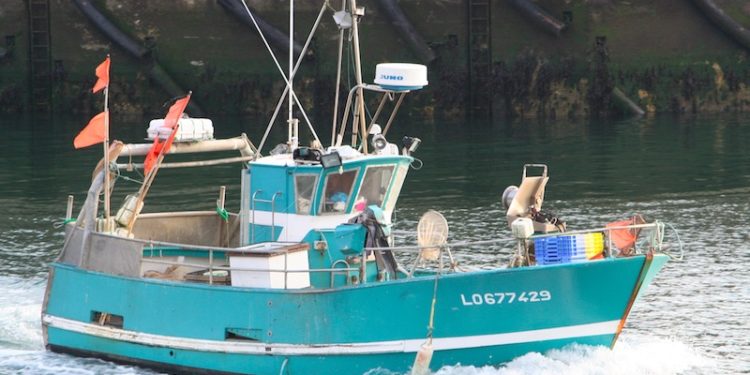The European Commission’s proposed new rules intended to revise the Union Fisheries Control System will present the fishing sector with extensive bureaucratic and economic burdens, according to European fishing industry body Europêche.
‘Europêche agrees on the need to modernise and simplify the control and enforcement measures adopted back in 2009 as well as to ensure full compliance with the Common Fisheries Policy (CFP). However, the European Commission is pursuing these objectives at the expense of the sector,’ commented Europêche president Javier Garat.
Following an evaluation on the implementation and effectiveness of the current EU Fisheries Control Regulation, the EC decided to table a new proposal to tackle the most significant shortcomings identified such as legal complexity, insufficient data exchange, uneven application of sanctions and lack of synergies with other policies.
‘We welcome the new common list of criteria for what qualifies serious infringements and corresponding sanctions that must be equally applied across Europe. This will certainly guarantee a level playing field as regards the application of control and enforcement measures to fishery operators across the EU,’ Javier Garat said, adding that the EC has also introduced new measures to bridge the possible legal gaps with the new CFP. Among these, one of the most controversial provisions is the mandatory use of CCTV cameras on board to control the landing obligation that will affect certain fleet segments to be determined by the specific control and inspection programmes.
‘We favour the use of high-tech remote electronic monitoring tools as well as raising legal standards. However, the introduction of new CCTV technology should be done either on a voluntary basis and linked to an incentive, or being introduced temporarily by the competent authority in a mandatory manner for those vessels that have developed a high profile of non-compliance,’ he said.
‘There should be genuinely good and compelling reasons for the major coverage of vessels with CCTV sought by the EC, since work performance, business confidentiality and privacy rights may be jeopardised.’
Europêche argues that the industry questions whether this is the path to take towards controlling the landing obligation and is concerned that its implementation could be too quick to allow a full understanding of all implications.
‘The sector strongly advocates moving away from this negative focus on the landing obligation. In this respect Europêche recalls that article 15 of the CFP on the landing obligation in its current form is neither implementable nor enforceable. Focusing predominantly on the aspect of compliance by monitoring and enforcement will not in itself deliver a workable landing obligation.’
He stated that in its new proposal, the EC also introduces the new obligation for vessels below 12 metres to install tracking systems as well as electronic catch reporting. Europêche believes that the introduction of this new technology should be easy to install, user-friendly and cost-effective without making requirements overly complex and burdensome for small vessels and particularly for undecked boats. Furthermore, the EC has further improved the reporting of lost fishing gears through the use of logbooks for all vessels.
In order to control fishing capacity the EC introduces the requirement for certain vessels with active fishing gear to be equipped with a device that monitors and records engine power.
‘In itself Europêche can imagine this to be an effective policy insofar the fleet in question’s fishing ability is directly related to its engine power and insofar the fleet has a record of non-compliance with engine power limits,’ Javier Garat said.
‘However, Europêche has repeatedly stated that Gross Tonnage (GT) and engine power (kW) measurements are not the right parameters for all fishing fleets for expressing and measuring fishing pressure. Moreover defining and limiting fishing capacity only by these two variables often blocks much needed investments in improving the safety and working conditions on board. Apart from the above, Europêche questions who would bear the running costs of this monitoring system proposed.’
He commented that Europêche welcomes the synergies created with market and IUU policies, including the strengthening of the European Fisheries and Control Agency (EFCA). In this sense, the full digitalisation of the IUU catch certificate is a step forward in the right direction to combat possible fraudulent imports from third countries. Furthermore, the fishing body appreciates the EC objective to further digitise the data flow between vessels/operators and competent authorities.
‘Finally, Europêche welcomes the EC’s ambition to include recreational fisheries in the Control Regulation, whose fishing activities until now have been largely been uncontrolled and unaccounted for,’ Javier Garat said.









